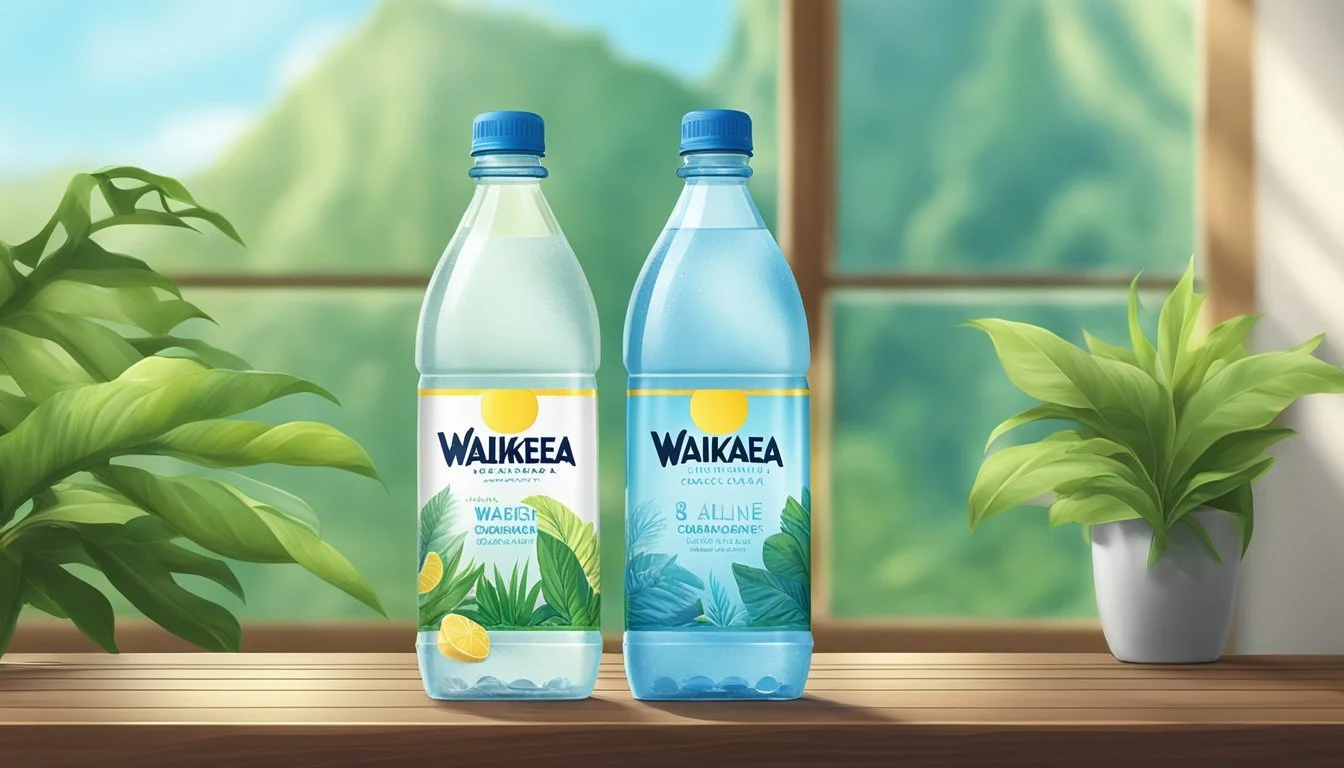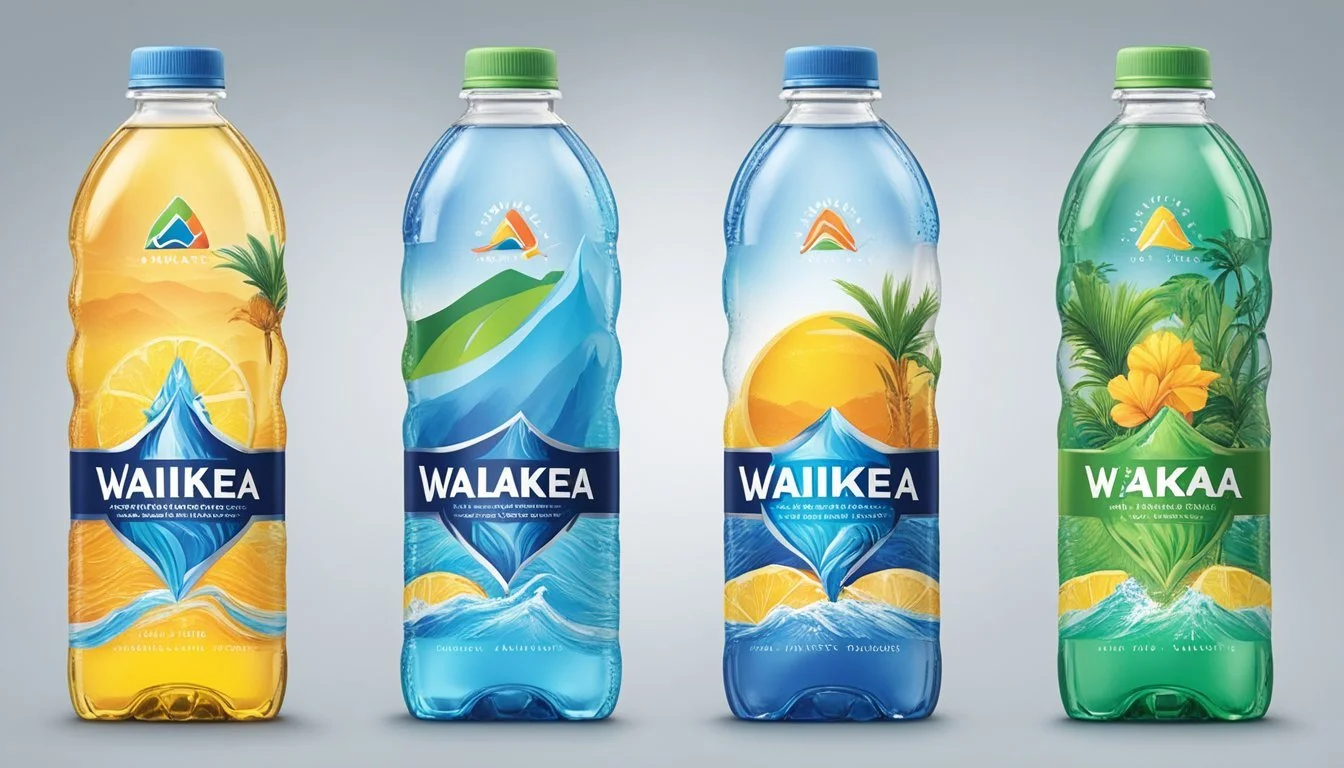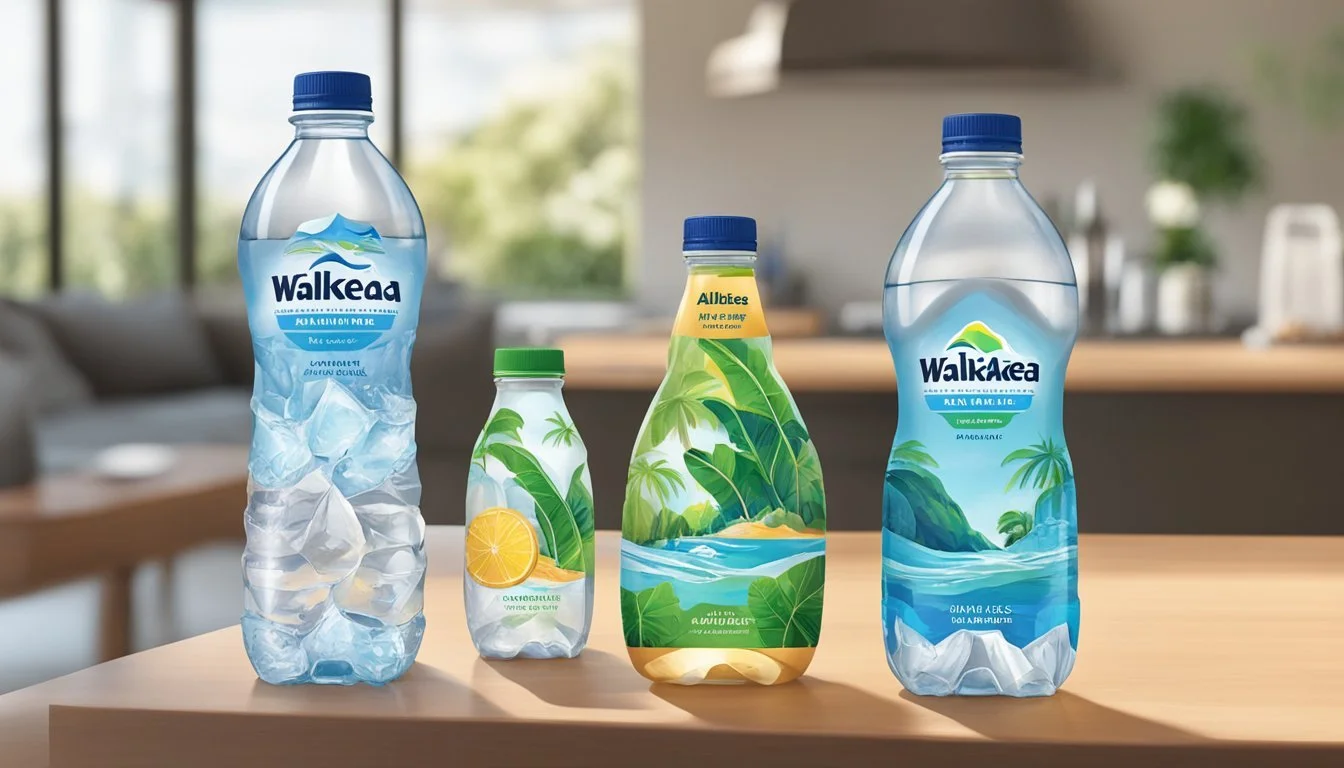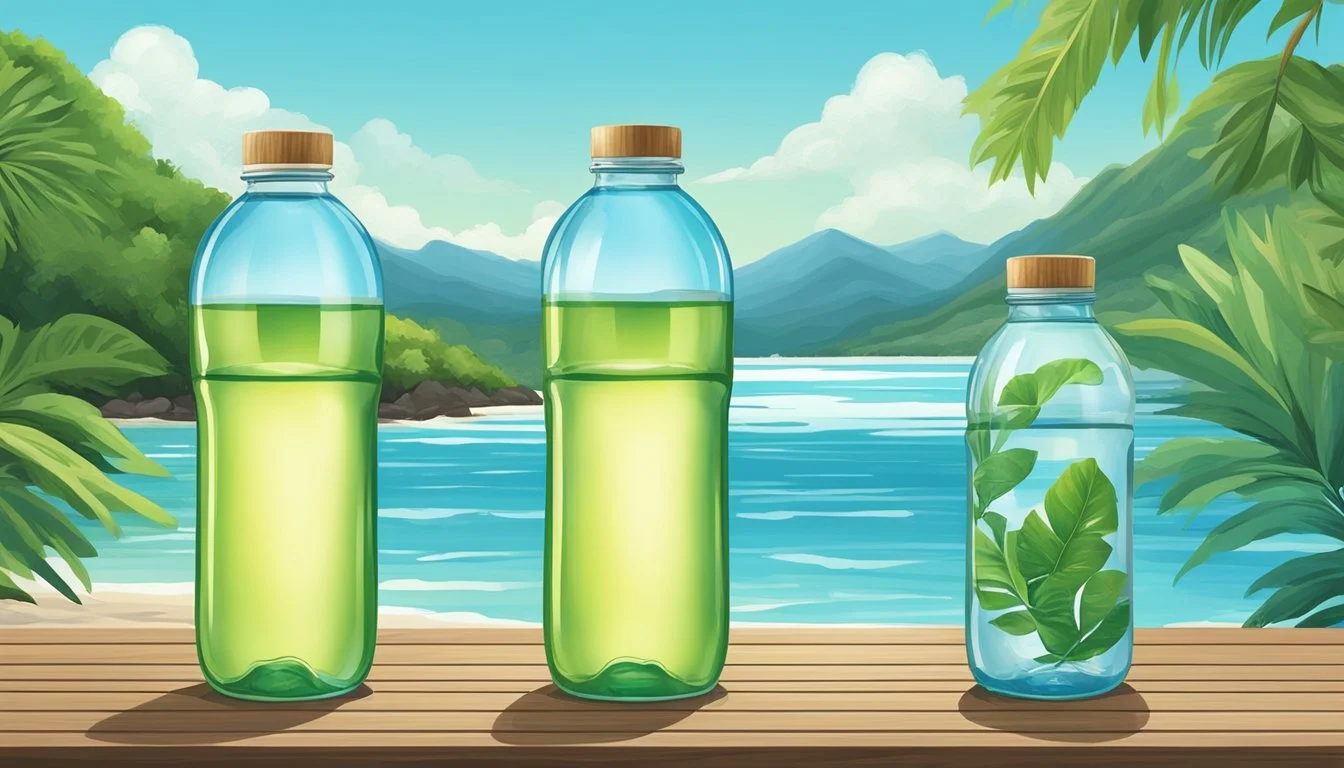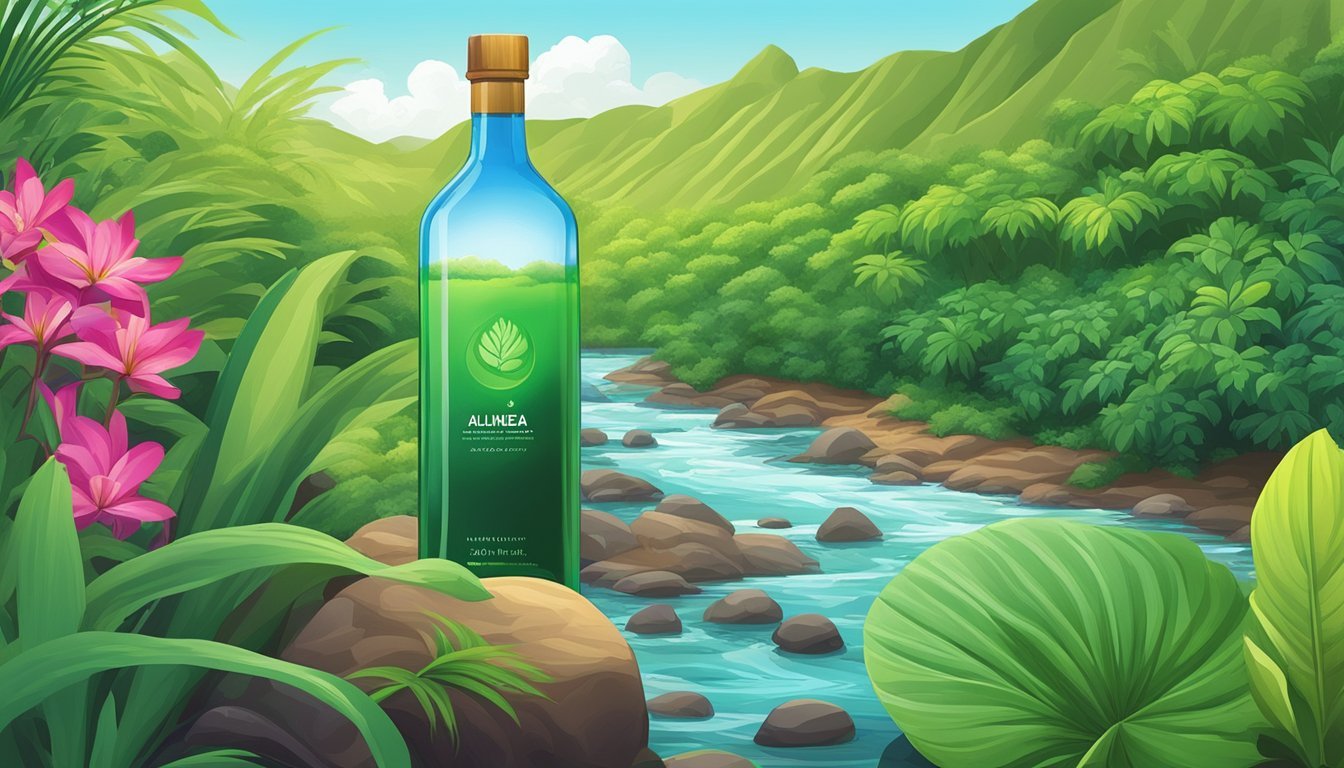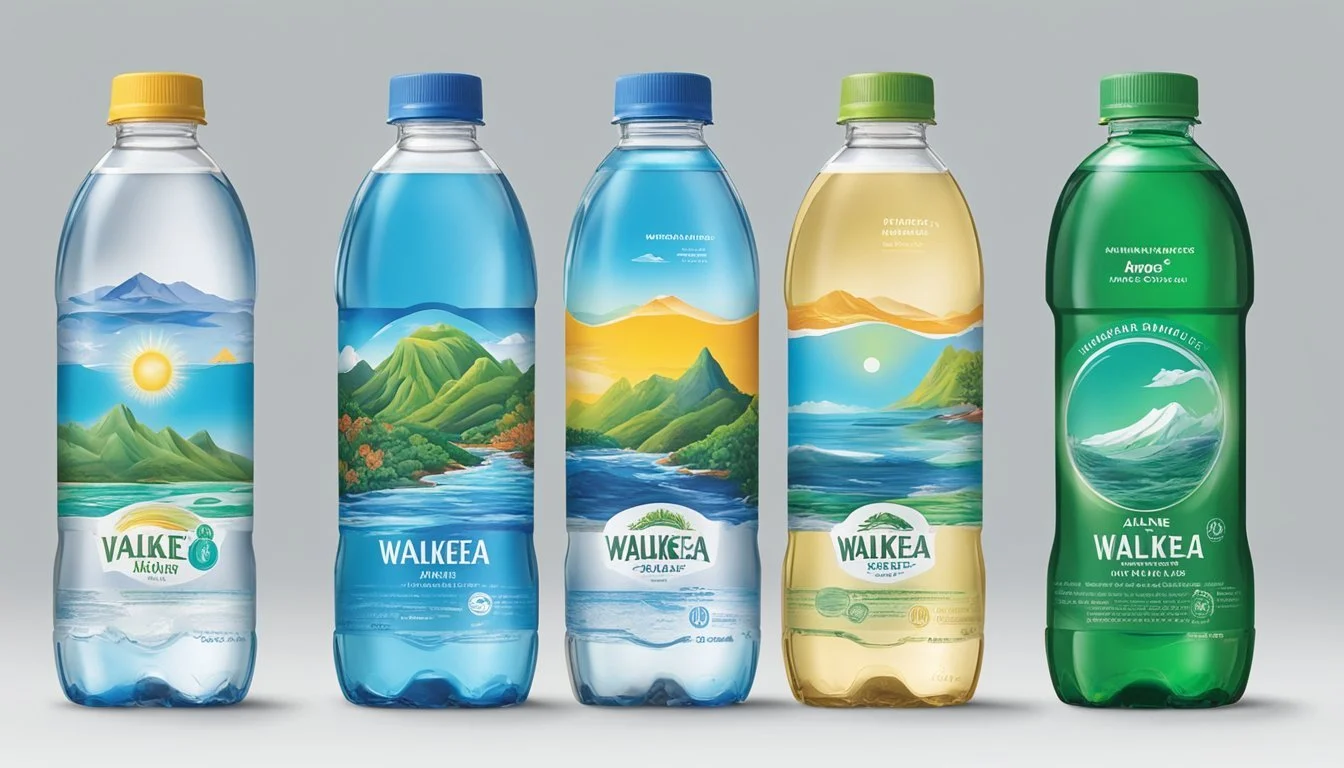Waiakea vs. Alkaline88
Comparing Top Bottled Waters
In the world of bottled water, Waiakea and Alkaline88 have established themselves as prominent brands, each boasting unique qualities. Waiakea, a Hawaiian brand, is known for its natural alkaline water with a pH of 8.8, sourced from the untouched Mauna Loa volcano. Alkaline88, on the other hand, is popular for its 8.8 pH level and ultra-purified nature, achieved through a process involving micro-filters, reverse osmosis, and ultraviolet exposure.
For those prioritizing purification, Alkaline88 stands out with its rigorous filtration process that ensures 99.9% purity. This makes it an appealing option for those concerned about contaminants. Waiakea, however, brings the allure of natural alkalinity and volcanic filtration, promoting a crisp and refreshing taste.
Choosing between these waters often boils down to personal preferences. Consumers seeking a mineral-rich, naturally alkaline beverage might lean towards Waiakea. Those valuing consistency and a highly controlled purification process may prefer Alkaline88. Both brands cater to different aspects of health and hydration, making them worthy contenders in the bottled water market.
Understanding Alkaline Water
Alkaline water is distinguished by its higher pH levels compared to regular drinking water. This section examines the properties of alkaline pH levels, the associated health benefits, and the manufacturing process of bottled alkaline water.
Defining Alkaline pH Levels
Alkaline water typically has a pH level above 7, making it less acidic than standard tap water. Standard drinking water usually ranges from pH 6.5 to 7.5.
Alkaline water, such as Alkaline88 and Waiakea, boasts pH levels of 8.8 or higher. The presence of minerals like calcium, magnesium, and potassium often contributes to the alkalinity of the water. These minerals help neutralize acidity in the body, creating a balance that some believe can support health.
Health Benefits of High pH
Proponents of alkaline water argue that its higher pH provides various health benefits. It is sometimes credited with reducing acid reflux due to its higher pH level.
Additionally, alkaline water is often seen as a powerful antioxidant. This means it can neutralize free radicals, which are molecules that may damage cells. Reports suggest that minerals in alkaline water can support hydration, skin health, and bone health.
However, scientific studies on these health claims are limited, and it is essential for consumers to approach these benefits with informed caution.
How Bottled Alkaline Water is Made
Bottled alkaline water like Alkaline88 and Waiakea undergoes a specific production process. Alkaline88, for example, uses electrolysis to raise the pH. In this method, water is passed through an electric current to separate ions, increasing alkalinity.
Waiakea's process is different, as it naturally filters through volcanic rock. This natural filtration infuses the water with essential minerals, resulting in its notable pH level of 8.8.
In both methods, the end product is water that has a higher pH than regular tap water. The process is monitored to ensure purity and consistency, often involving multiple filtration stages before being bottled.
Assessing Water Quality and Purity
Waiakea and Alkaline88 both offer unique qualities in terms of mineral content and purification processes, ensuring safe and healthy drinking water for consumers.
Evaluating Mineral Content
Minerals such as calcium, magnesium, potassium, and silica play essential roles in promoting health. Waiakea water is sourced from Hawaiian volcanic rock, which naturally infuses it with these beneficial minerals. Specifically, Waiakea contains silica, known for its health benefits.
Alkaline88, on the other hand, adds minerals through an electrolysis process. This process enhances the water with minerals absent in typical tap water, potentially improving hydration and overall health. Both brands offer appreciable mineral content, though their sources and methods differ significantly.
Understanding pH Levels in Drinking Water
pH levels indicate the acidity or alkalinity of water. Waiakea enjoys a naturally alkaline pH of about 7.6 to 8.2, attributed to the volcanic filtration process. This natural alkalinity contributes to maintaining a balanced body pH and promoting overall well-being.
In comparison, Alkaline88 is engineered to achieve a high pH level of 8, classifying it as alkaline water. This elevated pH is accomplished through an electrolysis process, distinguishing it from conventional bottled or tap water.
Lab Testing and Safety Standards
Both Waiakea and Alkaline88 prioritize safety and purity through rigorous lab testing and adherence to safety standards. Waiakea stands out by being certified Carbon Neutral and supporting global nonprofit initiatives. This certification reflects their commitment to sustainability and safety.
Alkaline88 undergoes reverse osmosis and other filtration techniques to ensure an impressive purity standard. This process effectively removes contaminants, including lead and other harmful substances, ensuring safe consumption. Their continuous testing provides confidence in the product's safety and quality.
These brands take different approaches to water quality and safety, yet both ensure the delivery of pure, contaminant-free drinking water.
Waiakea and Alkaline88: Brand Overviews
Waiakea and Alkaline88 are both well-regarded brands in the bottled water market, each with unique factors that set them apart. Waiakea is celebrated for its natural Hawaiian volcanic water sourced from Mauna Loa, while Alkaline88 emphasizes its high pH levels and purity achieved through scientific processes.
Waiakea: Hawaiian Volcanic Water
Waiakea sources its water from the Mauna Loa volcano in Hawaii. The water is naturally filtered through volcanic rock, which enriches it with minerals and gives it a high pH level of around 8.2, making it alkaline.
Waiakea's water contains beneficial minerals such as silica, which are said to be good for hair, skin, and nail health. The brand is also committed to sustainability, using BPA-free and 100% RPET bottles, and being the first US bottled water company to be certified Carbon Neutral.
In addition, Waiakea donates a portion of its revenue to nonprofits in Hawaii and around the world, emphasizing a mission of social responsibility.
Alkaline88: The Science of Alkalinity
Alkaline88, produced by The Alkaline Water Company, distinguishes itself with its high pH level of 8.8. This alkaline water is made using a process that involves adding Pink Himalayan Rock Salt, enhancing its purity and taste.
Founded in 2012, the brand prides itself on providing ultra-pure, smooth-tasting water. Alkaline88's focus on high alkaline properties appeals to those looking for hydration with potential health benefits.
The company uses innovative technology to maintain water quality and ensure consistent product standards. Each bottle aims to deliver a balanced and refreshing drinking experience, cementing its position in the alkaline water market.
Taste and Hydration Experience
Taste and hydration are critical when comparing Waiakea and Alkaline88 bottled water brands. Consumers often prioritize the mouthfeel and the hydrating qualities to make an informed choice.
The Mouthfeel of Alkaline vs. Neutral Water
Waiakea and Alkaline88 offer distinct taste experiences due to their differing pH levels and mineral content.
Alkaline88 has a higher pH level of 8.8, which contributes to its smooth and clean taste. The balanced mineral content, including added 84 trace minerals, enhances the flavor profile, making it a preferred choice for those who enjoy a subtle, slightly alkaline taste.
Waiakea water, originating from Hawaiian volcanic rock filtration, provides a unique mouthfeel. It is known for its naturally occurring minerals and electrolytes, giving it a slightly crisp yet smooth flavor. The pH level of around 8.2 balances the taste, making it appealing to those who prefer a natural and fresh water experience.
Taste preferences can be subjective, yet both brands ensure a high-quality hydration experience, catering to different palate preferences.
Hydrating Qualities and Electrolyte Levels
Both Waiakea and Alkaline88 emphasize their hydrating properties and electrolyte content.
Waiakea water is recognized for its naturally high electrolyte levels. The volcanic filtration process enriches the water with calcium, magnesium, and potassium. These minerals support proper hydration and balance the body's pH levels. Waiakea's mineral-rich profile makes it an excellent choice for athletes and individuals with active lifestyles.
Alkaline88 similarly boasts high hydration qualities due to its alkaline pH and added minerals. The water contains electrolytes like calcium and magnesium, which aid in maintaining hydration and enhancing athletic performance. The higher pH level is purported to help improve the body's acid-base balance, making it suitable for those seeking enhanced hydration and recovery benefits.
Both bottled water brands offer superior hydration options, catering to those who prioritize electrolyte balance and proper hydration in their daily consumptions.
Health and Lifestyle Considerations
When evaluating Waiakea and Alkaline88, attention must be given to their health impacts and lifestyle benefits. Each brand offers distinct advantages in areas like bone health, digestion, and overall hydration.
Comparative Health Benefits
Waiakea boasts an alkaline pH, silica content, and natural electrolytes. These elements can enhance hydration, support cardiovascular health, and improve skin quality. Silica is particularly beneficial for connective tissues, including skin and arteries.
Alkaline88, with its pH of 8.8, seeks to neutralize acid in the bloodstream, potentially reducing acid reflux. The product’s ionized alkaline water aims at better hydration and enhanced detoxification processes, especially given its simple ingredient list featuring purified water and mineralized elements.
Both brands emphasize electrolytes for maintaining the body's balance, but they target these aspects slightly differently: Waiakea with natural volcanic water and Alkaline88 with ultra-pure formulations.
Drinking Water's Role in Bone Health
Bone health is a significant concern as people age, and both Waiakea and Alkaline88 offer distinctive features aimed at supporting bone density. Waiakea water contains calcium, magnesium, and potassium, which are essential for strong bones and muscle performance. These minerals can aid in slowing bone resorption, a process that contributes to osteoporosis.
Alkaline88’s high pH also contributes to minimizing bone resorption, although it does so primarily through reducing acidity, which can draw minerals away from bones. Regular consumption of these waters can be seen as a proactive move against conditions such as osteoporosis by providing essential minerals and maintaining an alkaline state in the body.
Impact on Digestion and Detoxification
Water plays a crucial role in digestive health and detoxification. Both Waiakea and Alkaline88 aim to improve these bodily functions. Waiakea’s natural alkalinity helps neutralize stomach acid, potentially easing symptoms for individuals with acid reflux.
Alkaline88 focuses on the benefits of alkaline water in detoxification, suggesting that maintaining an alkaline environment in the body can help cleanse acidic waste products more effectively. This may boost metabolic processes and improve overall digestion.
Regular intake of alkaline water from either brand can support overall metabolic health, improving the body's ability to detoxify and maintain a proper digestive balance.
Environmental Impact and Sustainability
When considering the environmental impact and sustainability of Waiakea and Alkaline88, several crucial factors come into play. These include the eco-friendliness of their packaging, water source conservation efforts, and long-term sustainability strategies.
Packaging and Eco-Friendly Practices
Waiakea emphasizes the use of 100% rPET (recycled PET) for their bottles, which significantly reduces their carbon footprint. These bottles use 85% less energy to manufacture and produce 79% fewer carbon emissions compared to traditional virgin plastic.
Alkaline88, while also seeking sustainability, focuses on BPA-free plastic in its packaging. Though less eco-friendly than Waiakea's rPET approach, their BPA-free plastic still addresses health and environmental concerns associated with regular plastic.
Compared to other brands like Fiji, Waiakea's commitment to using recycled materials sets a higher standard in the bottled water industry.
Water Source Conservation and Community
Waiakea sources its water from a volcanic aquifer in Hawaii that boasts a 1.4 billion gallon recharge rate. This ensures that their water supply remains renewable and sustainable. Additionally, Waiakea donates over 5% of revenue to non-profits in Hawaii, reinforcing its commitment to community and conservation.
Alkaline88 sources its water from natural springs in the United States, focusing on purity and pH balance. Though their contribution to community initiatives is less emphasized in available literature, they prioritize maintaining the natural state of water sources.
Both brands strive to balance water extraction with environmental responsibility, but Waiakea's community-focused initiatives offer added value.
Long-Term Sustainability of Water Brands
Waiakea's long-term sustainability is highlighted by its reliance on renewable energy, with 33% of their production energy sourced renewably. Their use of rPET and local community support bolsters their vision of a sustainable future.
Alkaline88 aims for sustainability through BPA-free packaging and maintaining the high purity of their water sources. Their pricing positions them as a premium choice, which might limit their mass market reach but supports sustainable practices at a smaller scale.
In terms of broader environmental impact, both Waiakea and Alkaline88 contribute to sustainability efforts, though Waiakea's holistic approach including renewable energy and community engagement provides a more comprehensive strategy.
Comparing Costs and Accessibility
When evaluating Waiakea and Alkaline88, the key considerations are their price points and market availability. These factors help determine their value and convenience for consumers.
Price Points of Different Water Brands
Waiakea is often priced at a premium due to its volcanic water source and enhanced mineral content. This can make it more expensive than other bottled water brands. Typically, a liter of Waiakea ranges from $2.50 to $3.50.
In contrast, Alkaline88 positions itself as a more affordable alkaline water. A liter can cost between $1.50 to $2.50, making it a budget-friendly option in the alkaline water market.
For comparison:
Fiji Water: $2.00 to $3.00 per liter
Evian: $1.50 to $2.50 per liter
Dasani (Coca-Cola): $1.00 to $1.50 per liter
Availability in Various Markets
Waiakea and Alkaline88 display varying degrees of accessibility. Waiakea is available in select health food stores, specialty grocery chains, and online platforms. Its distribution can be more limited compared to mainstream brands.
Alkaline88 enjoys broader market penetration. It's commonly found in major grocery stores, convenience stores, and online retailers. This makes it more accessible to the average consumer.
Other brands:
Nestle Pure Life: Widely available in large retail chains
Smartwater (Coca-Cola): Highly accessible in supermarkets and convenience stores
Aquafina (PepsiCo): Easily found throughout various retail outlets
These distinctions in cost and availability can significantly influence consumer choices between Waiakea and Alkaline88.
Additional Factors and Innovations
This section explores distinctive characteristics, innovative developments, and emerging trends in the bottled water industry, focusing on Alkaline88 and Waiakea.
Unique Features of Bottled Waters
Waiakea prides itself on its naturally alkaline pH level of 8.8, derived from the volcanic rock filtration process in Hawaii. This process not only enhances the water's pH but also infuses it with beneficial minerals, such as calcium, potassium, and magnesium.
Alkaline88, meanwhile, achieves an alkaline pH of 8.8 through the addition of minerals like magnesium, potassium, and calcium. Unlike some other brands, Alkaline88 focuses heavily on hydration and mineral content to support muscle function and bone health.
Both brands incorporate unique features that contribute to their distinct offerings in the bottled water market.
The Development of Enhanced Water Options
Enhanced water options have grown significantly, driven by scientific evidence supporting the benefits of alkaline water and ionized water.
Waiakea uses natural filtration processes without human intervention, boasting a high silica content, which is believed to aid in hair, skin, and nail health. This naturally occurring enhancement makes Waiakea a unique choice for consumers seeking a more organic source of purified water.
Alkaline88 utilizes a specialized process to infuse water with electrolytes, ensuring a higher purity by combining micro-filters, reverse osmosis, and electrolysis. These procedures aim to provide water with added health benefits and improved taste.
Future Trends in Bottled Water Industry
Future trends in the bottled water industry indicate a strong shift toward enhanced water with added minerals and specific health benefits.
Consumers increasingly seek transparency about the origins and processes behind their water. Brands like Waiakea and Alkaline88 are likely to continue innovating in this space, offering purified water with distinctive electrolytes and minerals.
The rise of sustainability in the industry cannot be ignored. Companies are using eco-friendly packaging and promoting the environmental benefits of their water sources.
Emerging trends suggest a future where consumers will demand more from their bottled water, valuing innovation and scientific evidence that support health benefits.
More About Waiakea
Icelandic Glacial vs Waiakea: Which Bottled Water is Better?
Mountain Valley Spring Water vs Waiakea: Which Bottled Water is Better?
Waiakea vs Kirkland Signature: Which Bottled Water is Better?
Waiakea vs Richard's Rainwater: Which Bottled Water is Better?
Waiakea vs Whole Foods Italian Still Mineral water: Which Bottled Water is Better?
More About Alkaline88
Alkaline88 vs Crystal Geyser: Which Bottled Water is Better?
Alkaline88 vs Kirkland Signature: Which Bottled Water is Better?
Alkaline88 vs Richard's Rainwater: Which Bottled Water is Better?
Alkaline88 vs Talking Rain AQA: Which Bottled Water is Better?
Alkaline88 vs Whole Foods 365: Which Bottled Water is Better?
Aqua Carpatica vs Alkaline88: Which Bottled Water is Better?
Cascade Mountain vs Alkaline88: Which Bottled Water is Better?
Core Hydration vs Alkaline88: Which Bottled Water is Better?
Hawaii Volcanic vs Alkaline88: Which Bottled Water is Better?
Hawaiian Springs vs Alkaline88: Which Bottled Water is Better?
Icelandic Glacial vs Alkaline88: Which Bottled Water is Better?
Mountain Valley Spring Water vs Alkaline88: Which Bottled Water is Better?
Nestle Pure Life vs Alkaline88: Which Bottled Water is Better?
San Pellegrino vs Alkaline88: Which Bottled Water is Better?
Solan de Cabras vs Alkaline88: Which Bottled Water is Better?
Whole Foods Italian Still Mineral water vs Alkaline88: Which Bottled Water is Better?


